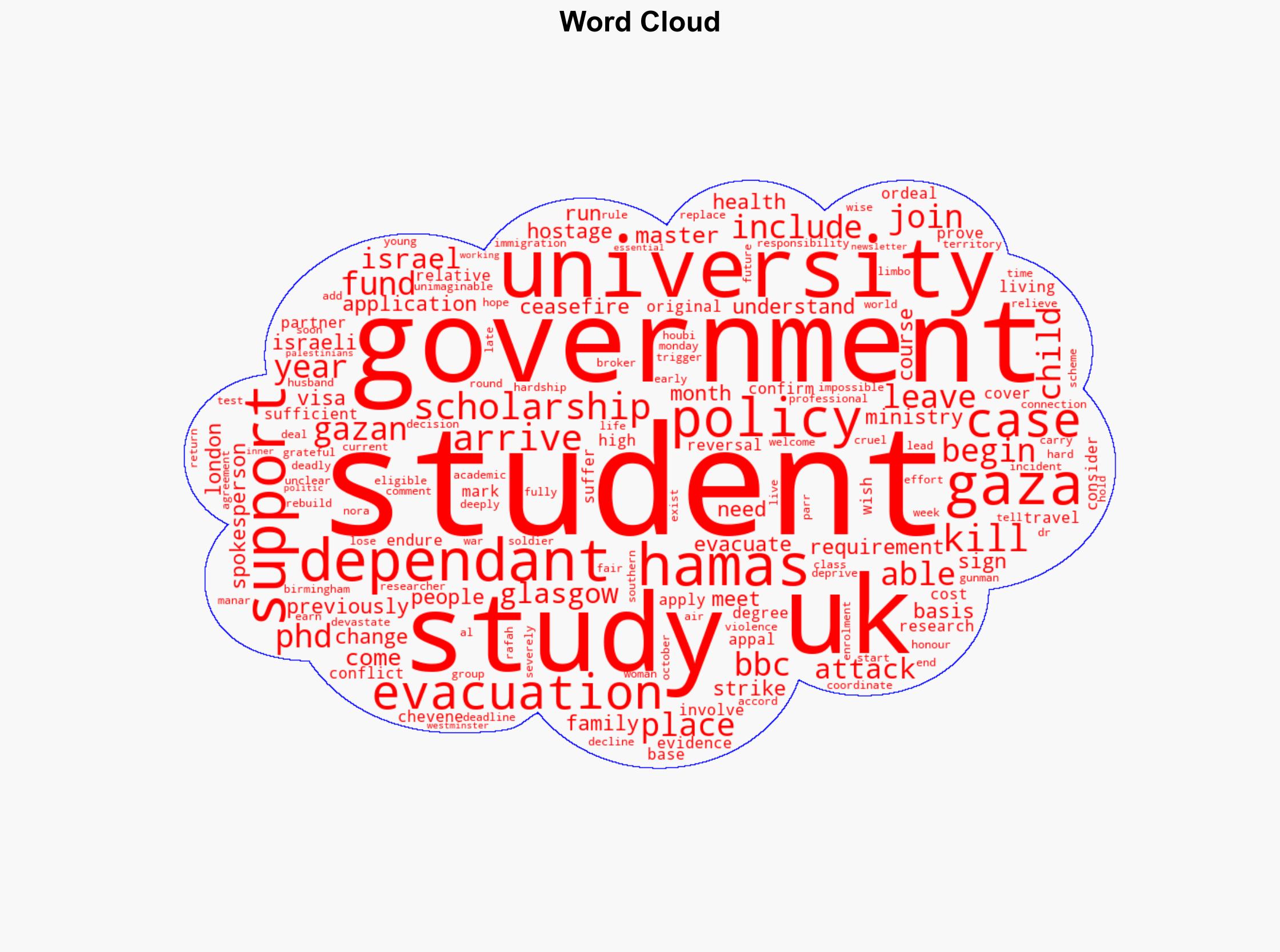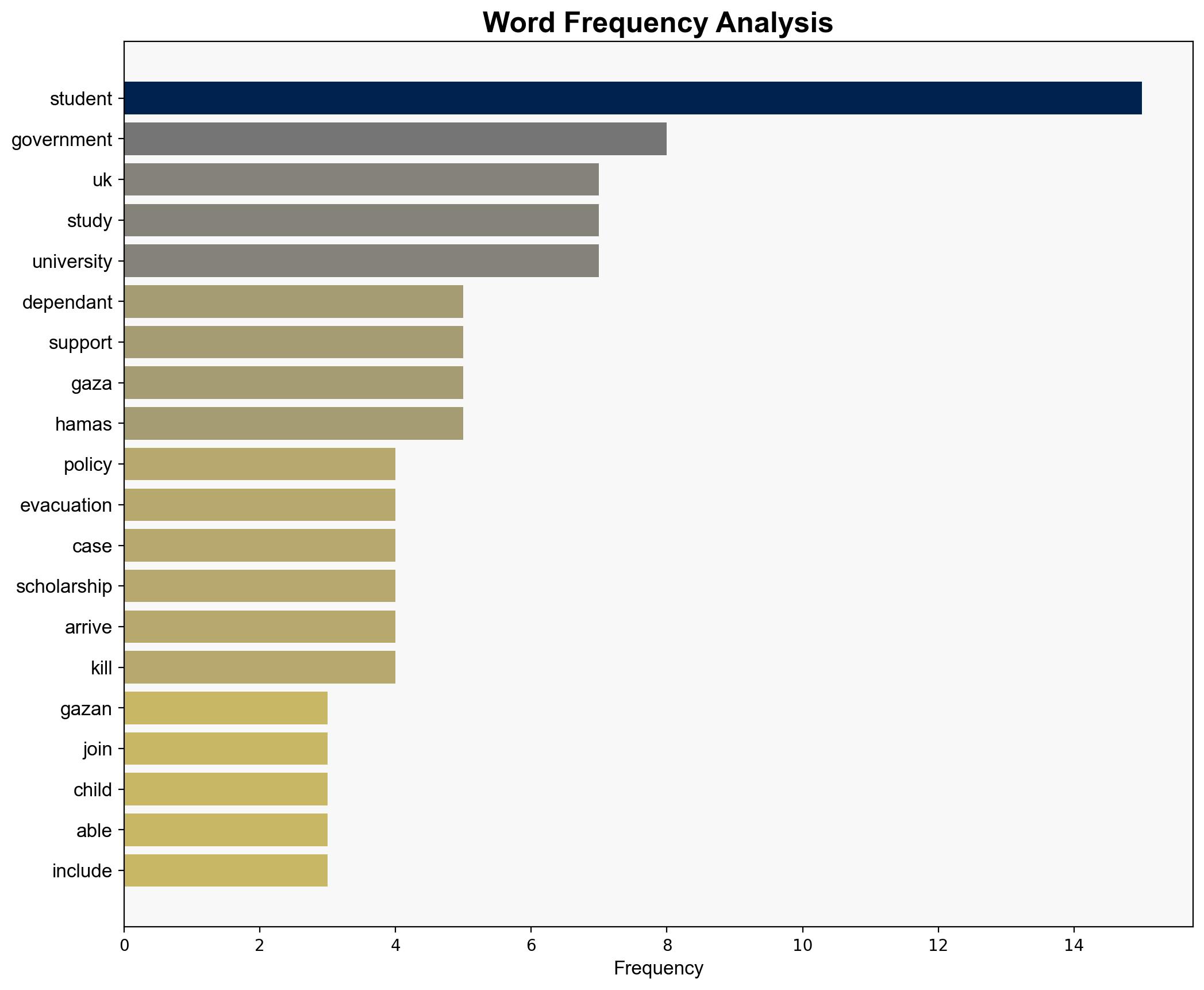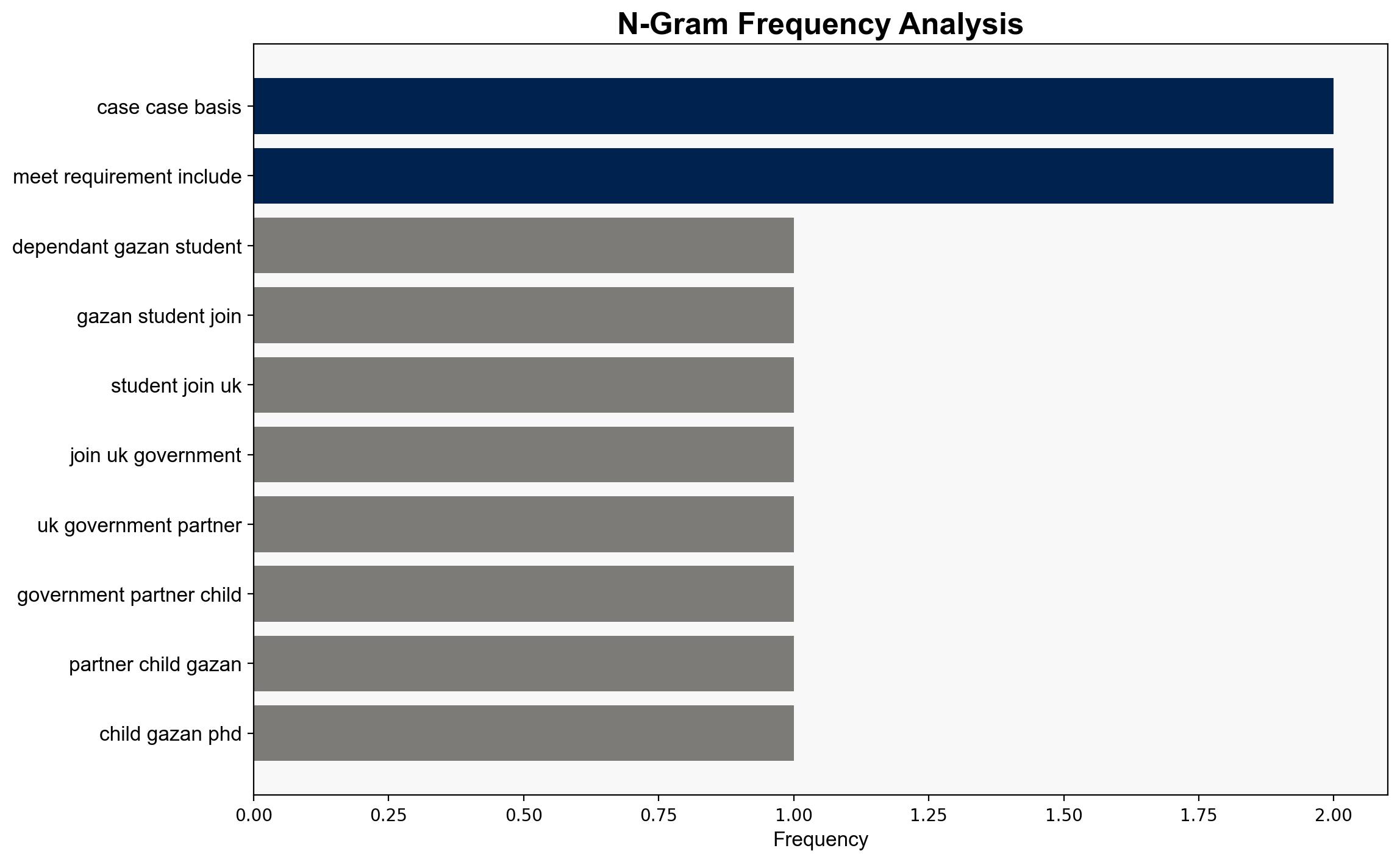Dependants of Gazan students can join them in UK government says – BBC News
Published on: 2025-10-30
Intelligence Report: Dependants of Gazan students can join them in UK government says – BBC News
1. BLUF (Bottom Line Up Front)
The UK government’s policy reversal allowing dependants of Gazan students to join them is a strategic move to support educational opportunities and humanitarian efforts amidst ongoing conflict. The hypothesis that this policy change is primarily driven by humanitarian considerations is better supported. Confidence Level: Moderate. Recommended action: Monitor the implementation of this policy and its impact on UK-Gaza relations and regional stability.
2. Competing Hypotheses
1. **Humanitarian Motivation Hypothesis**: The UK government reversed its policy to allow dependants of Gazan students to join them primarily due to humanitarian concerns, aiming to alleviate the hardships faced by Gazan students and their families.
2. **Political and Diplomatic Strategy Hypothesis**: The policy change is a strategic political move to strengthen diplomatic ties with Gaza and demonstrate the UK’s commitment to supporting educational and humanitarian initiatives in conflict zones.
Using ACH 2.0, the humanitarian motivation hypothesis is more strongly supported by the evidence of the UK government’s emphasis on the hardships faced by Gazan students and the specific mention of supporting evacuation efforts.
3. Key Assumptions and Red Flags
– **Assumptions**: The policy change assumes that the UK has the capacity and resources to support the influx of dependants and that this will not strain existing systems.
– **Red Flags**: The lack of clarity on the long-term sustainability of this policy and potential public backlash if the policy is perceived as preferential treatment.
– **Blind Spots**: The potential impact on UK domestic politics and public opinion is not addressed in the source.
4. Implications and Strategic Risks
– **Geopolitical Risks**: This policy could affect UK relations with other Middle Eastern countries, potentially leading to diplomatic tensions.
– **Economic Implications**: The financial burden of supporting additional dependants could impact UK resources, especially if the policy is expanded.
– **Psychological Dimensions**: The policy may influence perceptions of the UK as a humanitarian leader, potentially affecting international reputation.
5. Recommendations and Outlook
- **Monitor Implementation**: Track the number of dependants arriving and assess the impact on local communities and resources.
- **Engage in Diplomatic Dialogue**: Use this policy change as a platform for broader diplomatic engagement with Middle Eastern countries.
- **Scenario Projections**:
– **Best Case**: Successful integration of dependants, enhancing UK’s humanitarian reputation.
– **Worst Case**: Strain on resources leading to public backlash and diplomatic tensions.
– **Most Likely**: Moderate success with manageable challenges in resource allocation.
6. Key Individuals and Entities
– Manar Al Houbi: Affected Gazan student expressing relief over the policy change.
– Dr. Nora Parr: Researcher involved in supporting Gazan students.
– University of Glasgow: Institution involved in the education of Gazan students.
7. Thematic Tags
humanitarian aid, educational policy, Middle East relations, UK immigration policy




